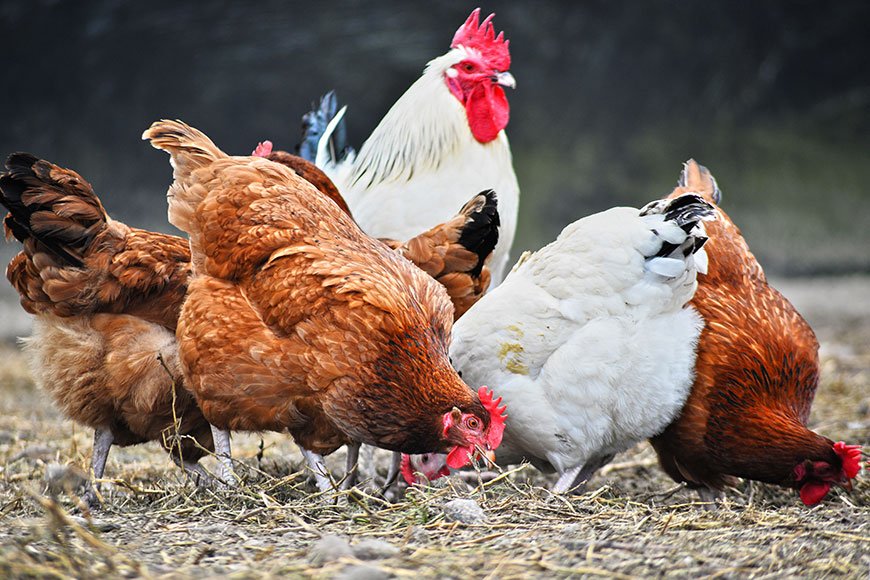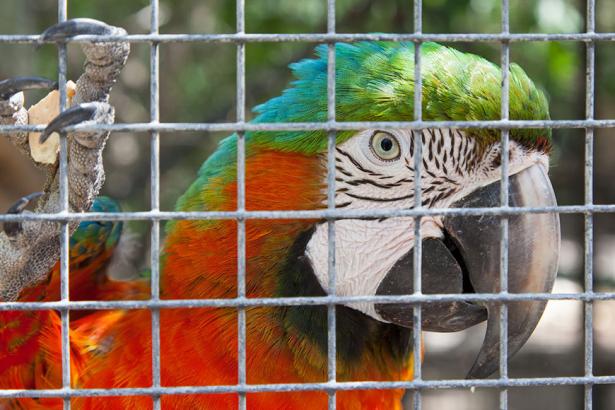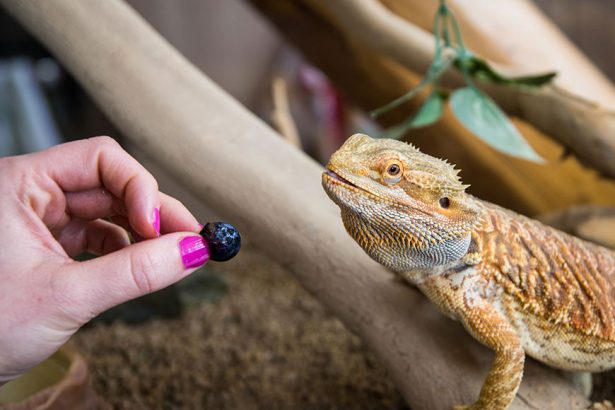Chickens, traditionally associated with rural farm settings, have increasingly become a popular choice for urban households in Australia. Their quirky personalities, combined with their intriguing behaviours, make them a delightful addition to any home. As a veterinarian, I’ve had the privilege of witnessing the bond between chickens and their owners. This article offers a detailed guide on keeping chickens as pets.
Vaccinations and Health: Prioritising Well-being
Ensuring the health and well-being of your chickens begins with timely vaccinations. Many viral diseases that target chickens necessitate early vaccination, often within the first 24 hours of their life. If this important step is missed, the chicken remains vulnerable to that specific disease, with no subsequent opportunity for effective vaccination. Given that many of these viral diseases lack effective treatments, it’s imperative to source chickens that have been appropriately vaccinated, especially if you’re raising chickens for pets.
In Australia, several common poultry diseases can have severe implications for chicken health. One such disease is Infectious Laryngotracheitis (ILT), a highly contagious respiratory disease that can lead to significant mortality rates if not managed promptly.
Another prevalent disease is Marek’s Disease, a herpes virus that affects the nervous system of chickens, leading to paralysis and tumours. It can survive in the environment for up to a year so it’s vital that pet chickens are vaccinated.
Fowl Cholera is a highly contagious bacterial disease with a short incubation period of just 2-3 days, which can result in sudden death, especially in older birds.
Newcastle Disease is another viral infection that affects the respiratory, nervous, and digestive systems. Its symptoms can range from mild respiratory signs to sudden death.
Infectious Bronchitis primarily affects the respiratory system but can also impact the reproductive system, leading to a drop in egg production and quality.
Fowl Pox is a slow-spreading disease that manifests as pox lesions on the unfeathered parts of the bird. While not typically fatal, it can lead to decreased egg production and increased vulnerability to other diseases due to the weakened state of the infected bird.
Given the prevalence and potential severity of these diseases in Australia, it underscores the importance of early vaccination and regular health checks by a chicken vet. It’s also crucial to maintain biosecurity measures, such as quarantining new birds and limiting exposure to wild birds, to prevent the introduction and spread of diseases within your flock.
Husbandry and the Chicken Coop: Providing a Comfortable Habitat
Chickens, like all avian species, require specific conditions to thrive. One common issue faced by chickens is pododermatitis, an inflammation of the foot, which can arise if they are housed on unsuitable surfaces like wire or concrete. The ideal choice would be a natural, soft ground, which mimics their natural habitat and is especially important for those considering keeping poultry as pets.
Perching is an integral part of a chicken’s daily routine. It not only offers them a chance to exercise their feet but also provides a sense of security and a vantage point from potential threats. Incorporating natural branches or varying sizes of dowel perches can cater to their perching needs.
Space considerations are paramount when setting up a coop or enclosure. Chickens exhibit a range of natural behaviours, such as dust bathing and foraging, which require adequate space. Overcrowding can lead to behavioural issues and facilitate the spread of diseases. Additionally, the coop should be fortified against potential predators and equipped to shield the chickens from extreme weather conditions, especially in our diverse Australian climate.
Where possible and safe you should always allow your chickens to roam freely outside their coop. This gives them the opportunity to explore, forage for food and pick at grass. Allowing pet chickens access to grass is essential for multiple reasons. Firstly, grass provides a natural and diverse diet, enriching their intake with essential vitamins, minerals, and trace nutrients that commercial feeds might not offer in abundance. This dietary enhancement not only improves their overall health but also contributes to the production of eggs with richer yolks and more robust shells. Moreover, foraging on grass stimulates chickens mentally and physically, promoting natural behaviours and ensuring they remain active and engaged. Grass also contains grit, which aids in digestion by helping grind down food in the gizzard.
Furthermore, a grassy environment supports the health of their feet and prevents conditions like bumblefoot, which can arise from consistently hard or muddy surfaces. In essence, granting chickens access to grass ensures a holistic approach to their well-being, both nutritionally and behaviorally.
Identifying and Addressing Common Problems
Despite their resilience, chickens can face various health challenges. Common indicators of health issues include changes in behaviour, lethargy, and weight loss. Early intervention can make a significant difference, so it’s essential to consult a veterinarian at the first sign of trouble. Worm infestations, external parasites, and various bacteria and viruses are some of the common challenges chickens face. Reproductive diseases, especially in hens that have been rescued from battery farms, can manifest in various ways, with an enlarged abdomen being a common symptom.
Deworming and Health Monitoring to Ensure Longevity
Given the natural environment in which chickens thrive, they are constantly exposed to various worms. These internal parasites, such as roundworms, tapeworms, and hairworms, can adversely affect a chicken’s health, leading to issues like weight loss, decreased egg production, and even severe respiratory distress.
Regular deworming is essential to ensure their well-being and to maintain a healthy flock. However, the effectiveness of deworming methods can vary based on factors like the type of worm, the age of the chicken, and the specific environment in which they are raised. Over-the-counter dewormers might not always be effective against all types of worms, and there’s also the risk of worms developing resistance to commonly used medications.
Therefore, it’s crucial to consult with a veterinarian who can provide guidance on the best deworming strategy tailored to your flock’s specific needs. Periodic faecal testing, where faecal samples are examined under a microscope, can further aid in identifying the types of worms present and their load. This diagnostic approach ensures that the chosen deworming regimen is not only effective but also targets the specific parasites affecting your chickens, leading to a healthier and more productive flock.
Understanding Common External Parasites in Chickens
Chickens, like many other animals, are susceptible to a variety of external parasites that can adversely affect their health and well-being. Among the most common are mites, particularly the red poultry mite (Dermanyssus gallinae) and the northern fowl mite (Ornithonyssus sylviarum). These tiny pests feed on the blood of chickens, leading to irritation, decreased egg production, and in severe infestations, anaemia. Scaly leg mites burrow into the skin of a chicken’s legs and feet, causing thickened, crusty scales and discomfort.
Lice are another common external parasite, feeding on dead skin and feather debris. While they don’t suck blood, their presence can cause intense itching, feather damage, and stress in the affected birds. Additionally, fleas and ticks can also be occasional pests for chickens, potentially transmitting diseases. Regular inspections of your flock, proper coop hygiene, and timely treatments are essential to keep these external parasites at bay and ensure the health of your chickens.
Reproductive Health Issues in Chickens
Reproductive diseases in chickens are a significant concern for poultry keepers, as they can impact egg production, the overall health of the bird, and the longevity of the flock. One of the most common reproductive issues is egg binding, where a hen is unable to pass an egg. This can be due to various reasons, including nutritional imbalances, obesity, or genetic factors.
Salpingitis, an inflammation of the oviduct, is another prevalent condition, often caused by bacterial infections, and can lead to decreased egg production or the laying of abnormal eggs. Ovarian cysts and tumours can also occur, affecting the hen’s ability to produce eggs. Additionally, chickens can suffer from vent prolapse, where the inner tissues of the vent protrude outside, often as a result of straining or laying overly large eggs.
Reproductive diseases can lead to discomfort, decreased productivity, and even death if not addressed promptly. Regular health checks, proper nutrition, and maintaining a clean environment are crucial in preventing and managing these conditions.
Proper Diet and Nutrition: Catering to Their Dietary Needs
Diet plays a pivotal role in determining the health and vitality of chickens. Age is a primary determinant; chicks, with their rapid growth, have different dietary needs compared to mature hens or roosters. Similarly, a laying hen’s nutritional demands differ from those of a non-laying bird due to the energy and resources expended in egg production.
A high-quality commercial poultry pelleted diet should be the primary food source. These pellets are formulated with a balance of proteins, vitamins, and minerals essential for poultry health. Protein, in particular, is crucial. It supports muscle development, feather growth, and overall metabolic functions. While growing poultry, such as chicks and pullets, require a protein content of around 18-20% to support their rapid development, mature birds, especially those not laying, generally require a slightly reduced content of about 14-16%.
In addition to pellets, supplementing their diet with fresh vegetables, mealworms, and certain table scraps can be beneficial. Fresh vegetables like leafy greens, carrots, and cucumbers can provide essential vitamins and minerals, enhancing their diet’s diversity. Mealworms, being protein-rich, serve as a treat and a valuable protein boost. Certain table scraps, in moderation, can also be introduced, but it’s vital to ensure they are safe for poultry consumption. Foods like avocados, chocolate, and onions should be avoided as they can be toxic to chickens.
Lastly, water is a non-negotiable aspect of their diet. Chickens consume large amounts of water daily, especially in warmer climates or when laying. Clean, fresh water aids in digestion, regulates body temperature, and facilitates various bodily functions. Regularly checking, cleaning, and refilling water sources is imperative to prevent diseases and ensure optimal health.
In conclusion, raising chickens as pets, while immensely rewarding, demands dedication, knowledge, and a keen eye for detail. Prioritising their well-being and seeking expert advice when in doubt can ensure that your feathered companions lead a life full of health and happiness.
We hope you found this article informative, for more articles on exotic pets and how to care for them click here.
FAQs
Common diseases include Infectious Laryngotracheitis, Marek’s Disease, Fowl Cholera, Newcastle Disease, Infectious Bronchitis, and Fowl Pox. These can be severe and often require early vaccination and regular health checks by a chicken vet.
Chickens need a comfortable habitat with soft, natural ground, perching options, protection from predators, shelter from extreme weather, and adequate space to exhibit natural behaviours like dust bathing and foraging.
Roaming and access to grass provide chickens with essential vitamins, minerals, trace nutrients, mental and physical stimulation, and prevent health issues like bumblefoot, which is associated with hard or muddy surfaces.
Indicators of health problems in chickens include changes in behaviour, lethargy, weight loss, enlarged abdomen, and other symptoms which should prompt a consultation with a veterinarian.
Regular deworming is vital to prevent internal parasites like roundworms, tapeworms, and hairworms, which can cause health issues and affect egg production. Searching online for a “chicken vet near me” will help you find a veterinarian who can assist you with a suitable deworming strategy.
While over-the-counter dewormers are available, their effectiveness can vary. It’s advisable to consult with a veterinarian to ensure you’re using the most appropriate and effective treatment for your flock.
Faecal testing helps identify the types and loads of worms present in your chickens, enabling you to select the most effective deworming treatment and monitor the health of your flock.
Yes, external parasites can cause irritation, stress, feather damage, decreased egg production, and in severe cases, anaemia due to blood loss.
Signs of mites and lice include visible insects on the skin or feathers, restlessness, decreased egg production, feather damage, and thickened, crusty scales on the legs and feet.
Begin by cleaning the coop thoroughly and removing any bedding or materials that might harbour parasites. Then, treat your chickens and their environment with the appropriate parasiticides, following veterinary guidance.
Regular inspections, proper coop hygiene, and timely treatments are necessary to control external parasites like mites, lice, fleas, and ticks, ensuring the chickens’ health.
Reproductive issues include egg binding, salpingitis, ovarian cysts, tumours, and vent prolapse. These conditions can affect egg production and the overall health of the chicken and should be addressed by a veterinarian.
Egg binding can be caused by nutritional imbalances, obesity, or genetic factors. Treatment may involve increased dietary calcium, gentle massage to help pass the egg, or veterinary intervention in severe cases.





